The 23rd National Symposium on Fiscal Theory Held in Beijing
Font size:Smallstandardlarge
On the afternoon of November 3, 2022, the Society of Public Finance of China (SPFC) held the 23rd National Symposium on Fiscal Theory in Beijing. Divided into the main forum and five parallel sub-forums, the symposium held a theoretical discussion on “China’s Finance in the New Era”.
Mr. Lou Jiwei, President of SPFC, attended the discussion in main forum. Seven experts delivered keynote addresses, including Mr. Shi Yaobin, Deputy Director of the Financial and Economic Affairs Committee of the 13th NPC and Director of the Budgetary Affairs Commission of the NPC, Mr. Yang Weimin, Member of the Standing Committee and Deputy Director of the Economic Affairs Committee of the 13th CPPCC National Committee, Mr. Gao Peiyong, Vice President and Member of the Leading Party Members’ Group of the Chinese Academy of Social Sciences and Member of the Economic Affairs Committee of the 13th CPPCC National Committee, Mr. Yu Bin, Deputy Director and Member of the Leading Party Members’ Group of Development Research Center of the State Council, Mr. Xu Xianchun (online), Contract Research Fellow of the National School of Development at Peking University, Mr. Wang Yi, Member of the CPC Committee and Deputy General Manager of China Everbright Group Ltd., and Mr. Liu Shangxi, Vice President & Secretary-General of SPFC and CPC Committee Secretary & President of CAFS. Mr. Ma Haitao, Vice President of SPFC and Deputy CPC Committee Secretary & Vice President of the Central University of Finance and Economics, and Mr. Guo Qingwang, Vice President of SPFC and Professor from Renmin University of China, presided over the symposium and commented on expert remarks.
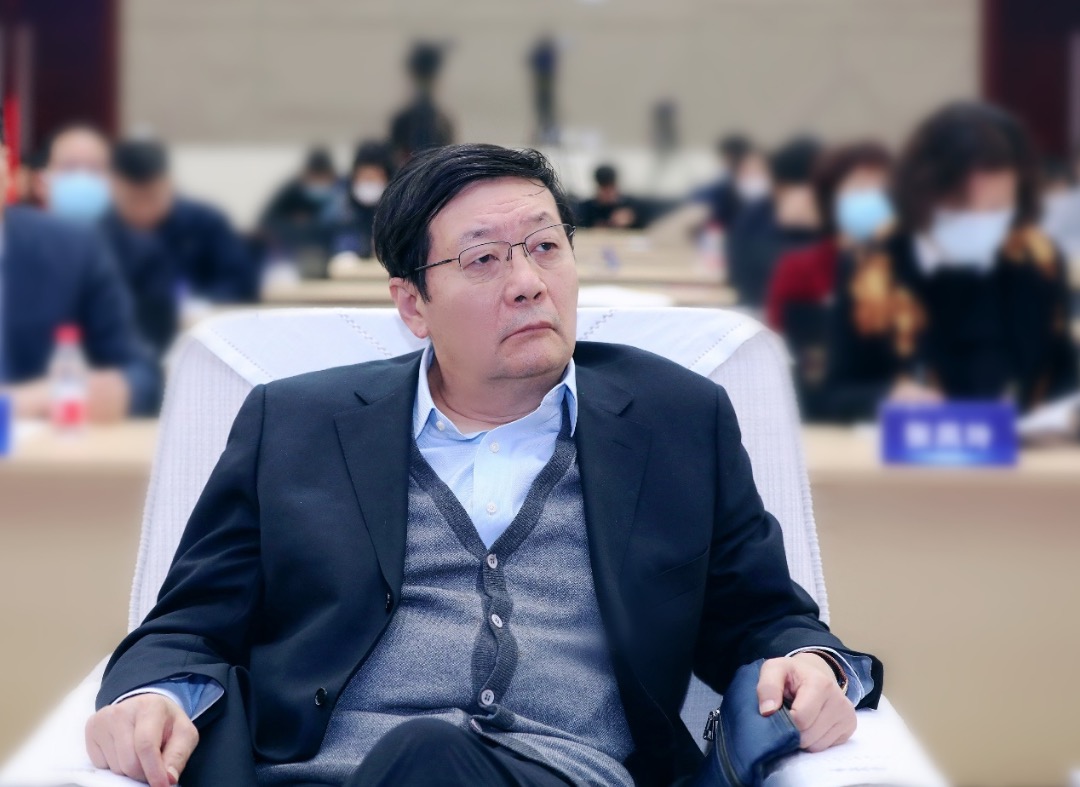
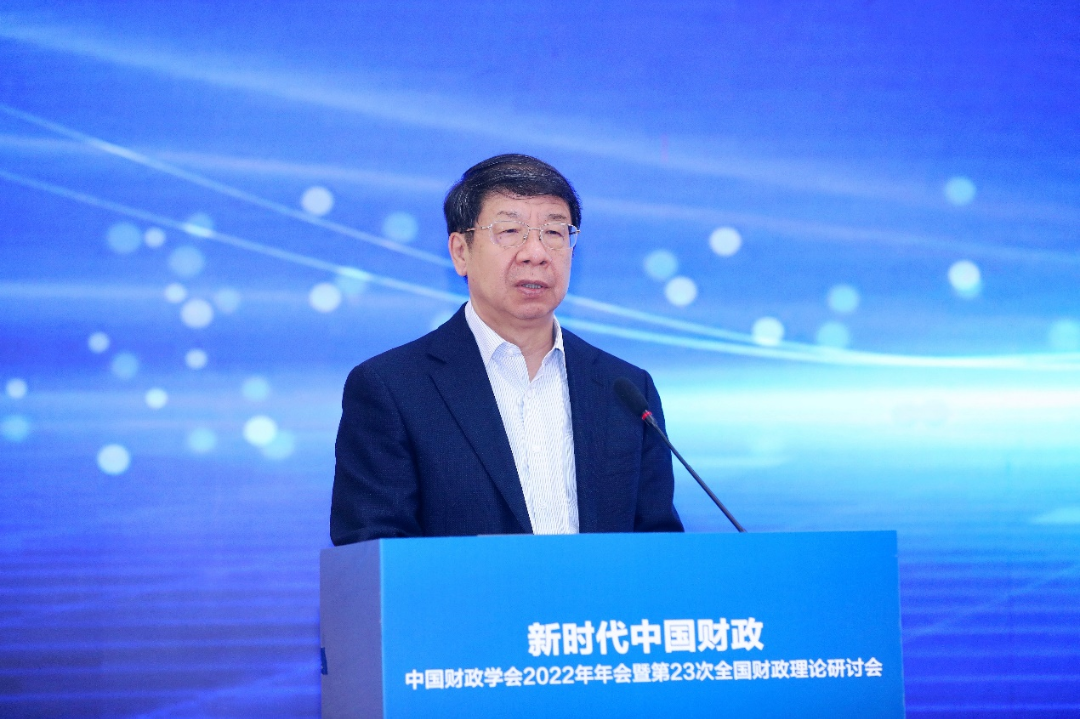
According to Mr. Shi Yaobin, in the past decade under the new era, public finance adapt to tasks and requirements at the new development stage actively. Public finance has played a great role in supporting socioeconomic development and promoting social equity, it also made important contributions to building a moderately prosperous society in all respects and completing the first centenary goal. In the historical course of achieving the second centenary goal and comprehensively promoting the great rejuvenation of the Chinese nation with Chinese-style modernization, China’s public finance is carrying important missions in the new era, such as enhancing the financial support capacity for major national strategic tasks, deepening reform, strengthening cross-cyclical and counter-cyclical adjustments.

Mr. Yang Weimin delivered a keynote speech on “Implementing the Guidelines of the 20th CPC National Congress and Promoting Economic Recovery Steadily Next Year”. He shared three reflections from learning the guidelines of the 20th CPC National Congress. First of all, the proposal of two tasks, namely the central task of “making China a great modern socialist country in every dimension” and the primary task of “high-quality development” for fully building a modern socialist China, provides a powerful ideological driving force for economic recovery steadily next year. Secondly, in order to facilitate economic recovery steadily next year, we must tackle three problems in terms of the epidemic, “threefold pressure” and main engine stall. Thirdly, we should focus on weakening expectations, expanding resident consumption, stabilizing real estate, promoting the development of platform economy sustainably and improving relevant policies.
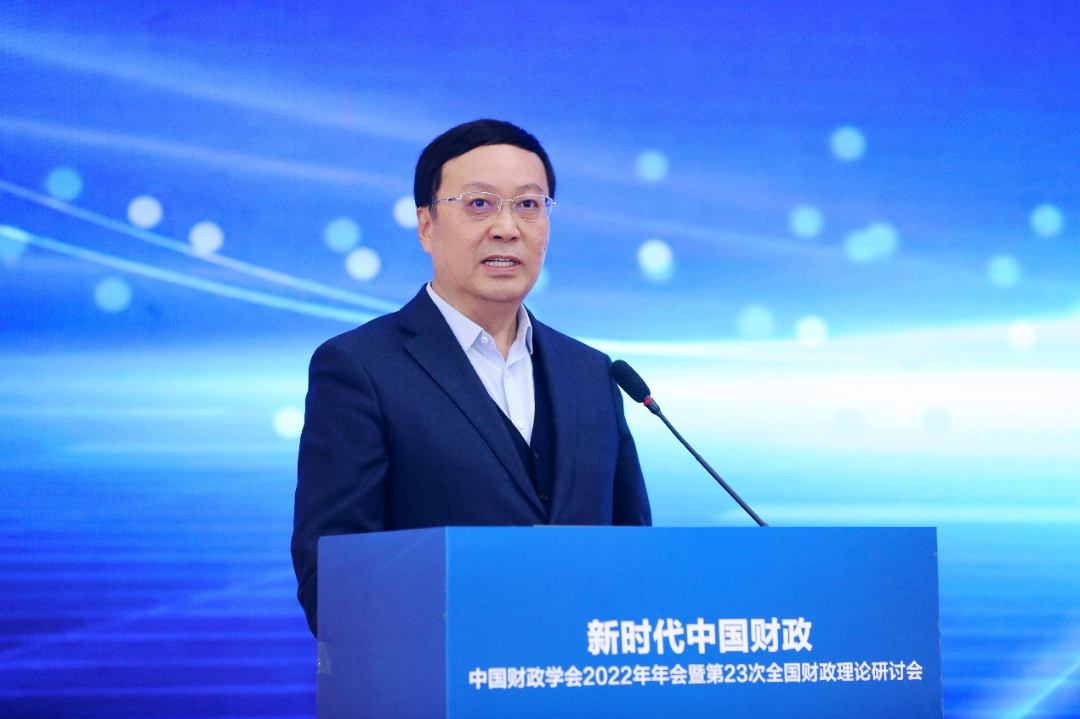
Mr. Gao Peiyong gave a keynote speech entitled “Structuring a Modern Fiscal and Taxation System in the Background of Chinese-style Modernization”. A modern fiscal and taxation system is an crucial aspect in promoting Chinese-style modernization and fully building a modern socialist China. To structure a modern system, it requres to planning and deploying from the height of state governance, exploring the truth, theory and philosophy behind, which includes developing a theoretical analysis framework, summarizing the practical experience of China’s fiscal and taxation system reform systematically, streamlining theoretical innovation achievements in China’s finance, and creating China’s own fiscal theory system.
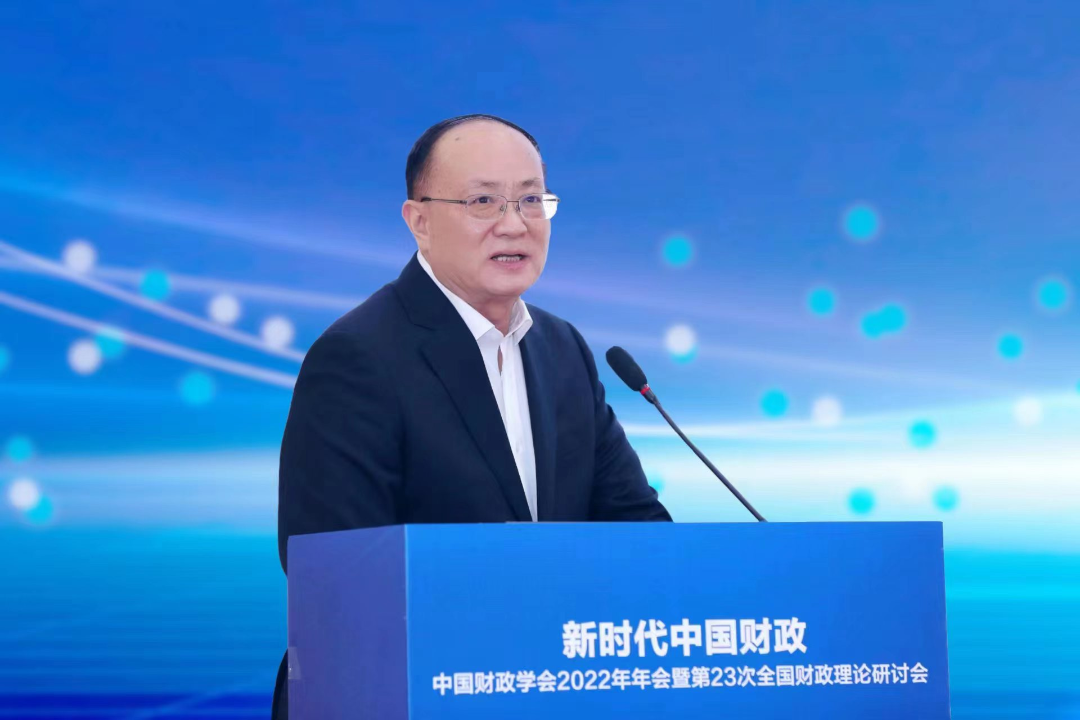
Mr. Yu Bin said that the world has entered into a period of new turbulence and transformation, and external attempts to suppress and contain China could be escalate at any time, thus we should give equal weight to the security as development. In the next five years, China will be able to climb over the high income threshold and enter the high-income society, after which the outstanding challenge may become the middle-income trap. To tackle that trap, we should prevent and defuse major risks, put efforts in structuring a new pattern of development which focused on the domestic economy circulation and featured positive interplay between domestic and international economic circulations.
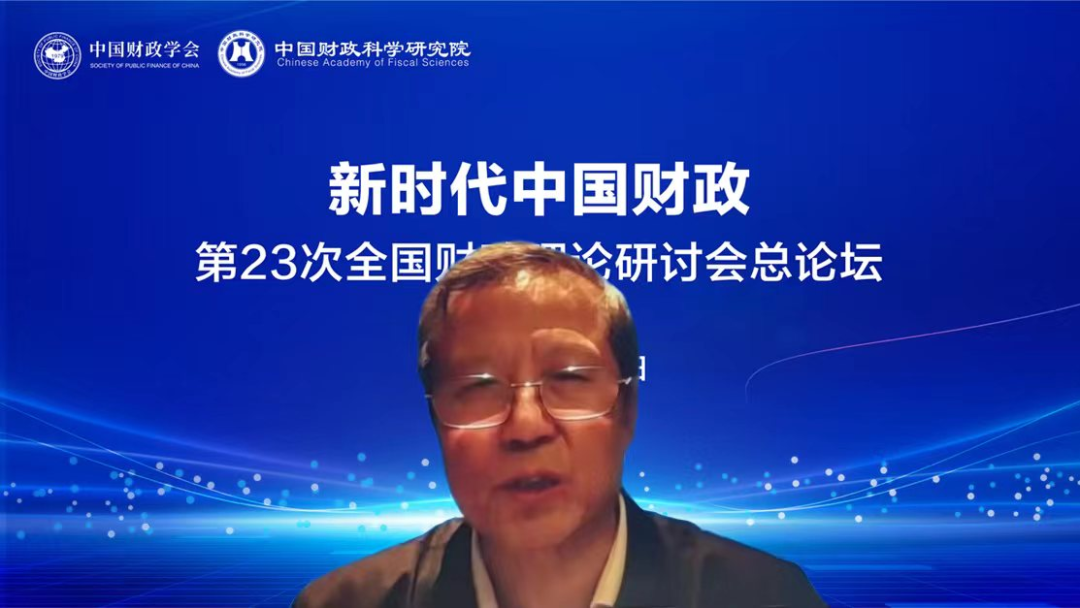
Mr. Xu Xianchun discussed around measuring the added value of digital economy. His speech focused on the definitions, basic classifications, measurement methods, data performance and prominent problems in value-added measurement of digital economy by relevant international organizations, statistical departments and research institutions. According to Mr. Xu, digital economy statistics have formed two calibers in terms of narrow and broad,, which basically matches the scopes of digital industrialization and industrial digitalization. In view of data performance, China features lower added value gross of narrow-caliber digital economy than that of the U.S, but the proportion in GDP is close. Measuring the added value of digital economy provides direct support for the tax policy in the digital field.
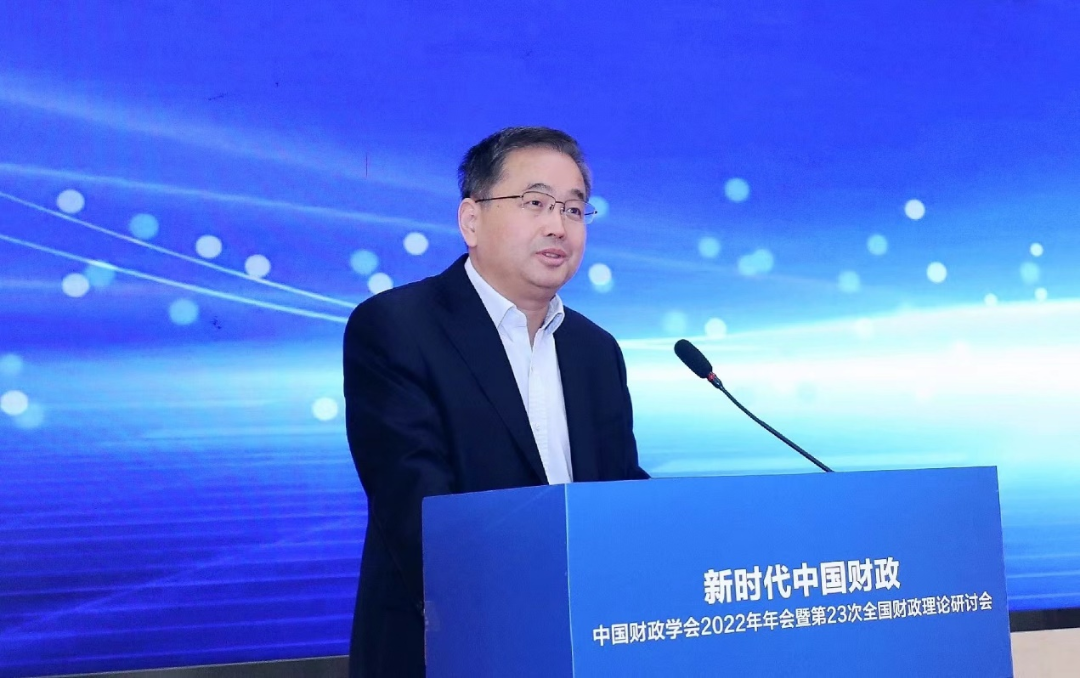
Mr. Wang Yi delivered a keynote speech entitled “Fiscal and Financial Policies to Promoting China’s Green and Low Carbon Transformation”. In consideration of China’s energy consumption structure, the goal of “having CO2 emissions peak before 2030 and achieving carbon neutrality before 2060” is correspond to domestic resource endowment characteristics. Based on the emission standards and quantity verification of pollutants, the financing problems in green and low-carbon development can be solved effectively by strengthening the synergistic support of fiscal and financial policies. At present, our carbon trading system and market is exposed to challenges in terms of technical support, activities observation, accounting standards, and insufficient experience. It is necessary to further clarify the internal logic of carbon trading, and avoid the trend of excessive financialization and complexity.

Mr. Liu Shangxi gave a keynote speech entitled “Structural Efficiency, Structural Reform and Peasant Society”. Structural efficiency lies in the state governance structure and prevails over resource allocation efficiency and utilization efficiency which realized through market mechanism. Composed of state, market and society, the state governance structure may produce different degrees of behavioral freedom and predictability of its rules, which fundamentally determining structural efficiency. Facing the three “binaries” difficulties which in terms of economy, society and ownership, China need to advance social reform, promote the peasantry citizenization , and accelerate the transformation of “peasant society” urgently.
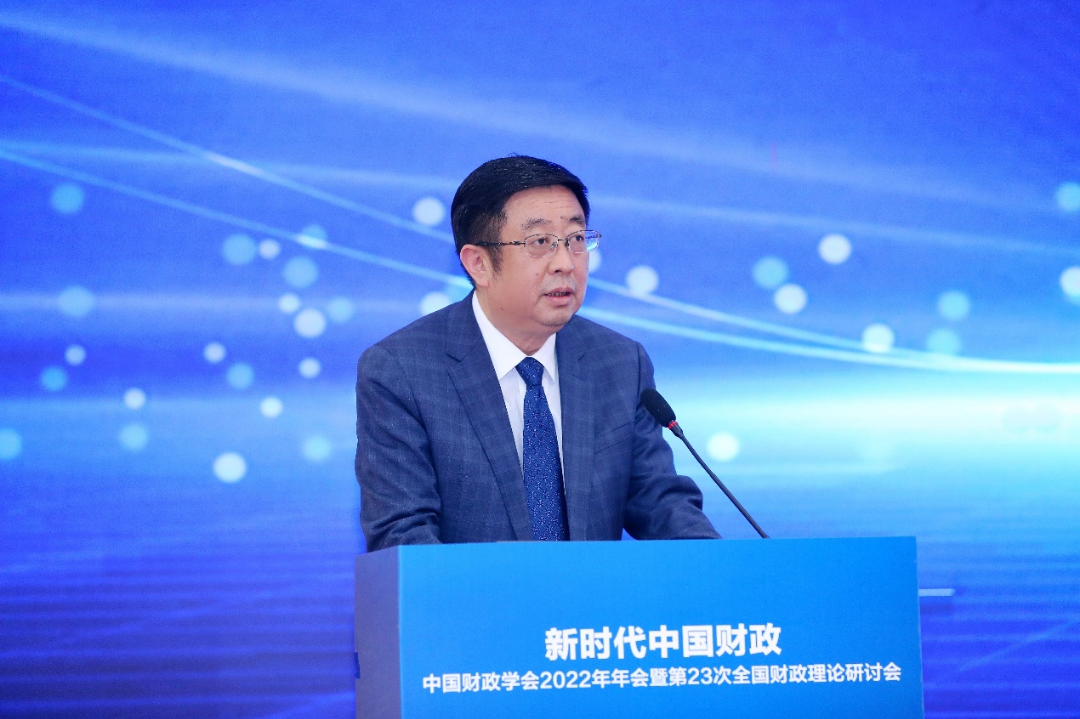
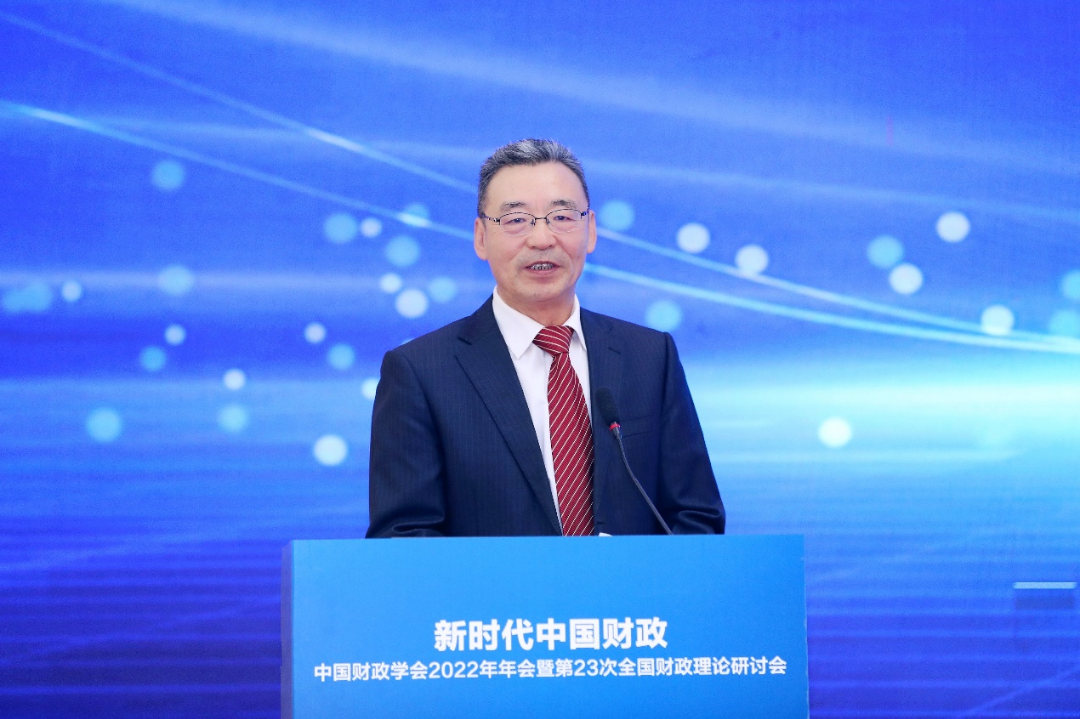
At the 23rd National Symposium on Fiscal Theory, participants thoroughly studied and implemented the guidelines of the 20th CPC National Congress, reviewed the achievements of fiscal reform, development and theoretical innovation in the past decade, and envisioned the development and research direction of fiscal theory in new era. In line with the guidelines of the 20th CPC National Congress, the symposium focuses on promoting the innovation in fiscal theory and policy research to answer the questions posed by the times, by China, and by the world.
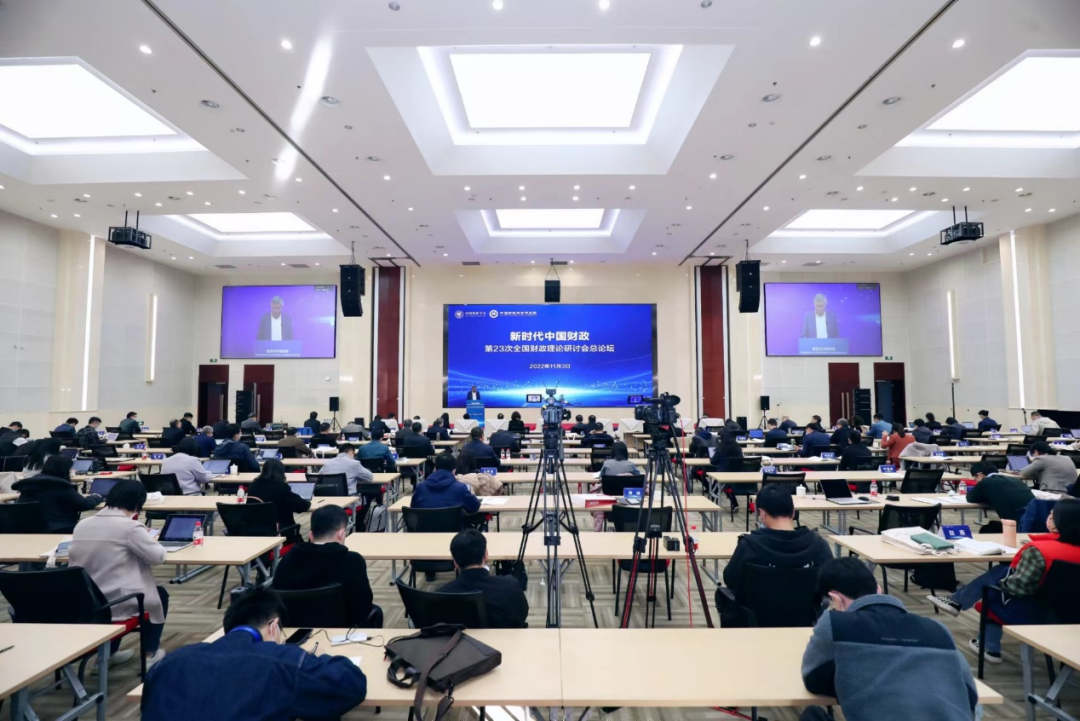
The symposium was held online and offline. Nearly 400 representatives from relevant central departments, scientific research institutions, local fiscal systems, universities and related businesses attended the symposium. According to the schedule, five parallel sub-forums were held on the morning of November 4.



